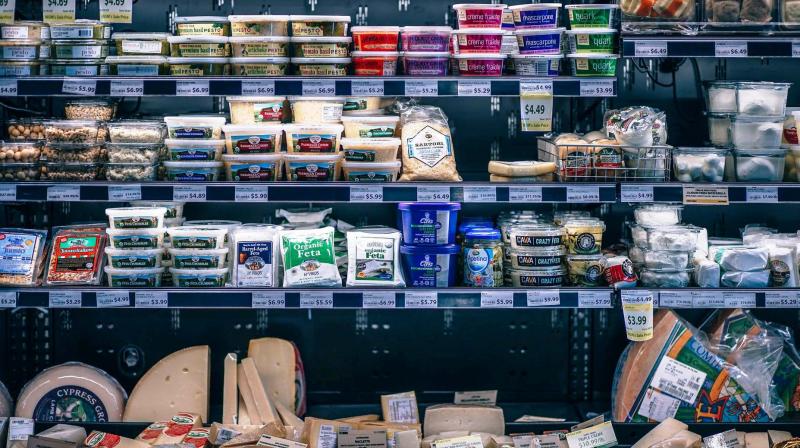How reliable are food expiry labels?

London: Have we been wasting perfectly good food all along? A year-long experiment conducted by a US grocer showed that expiry dates are probably wrong.
Normally, one would never eat yoghurt that expired six months ago. But Scott Nash, founder of the Mom’s Organic Market chain of grocery stores in US whipped up a smoothie with it. He saw that it did not have any mould or smell and decided to use it. “I drank and waited,” he wrote on his blog. And nothing happened.
When he realised that going past the expiry date hadn’t spoilt the food, he decided to experiment with more food items. Nash never liked wasting food and thought that by documenting his experience, he could reduce food wastage on a larger scale.
For his next food experiment, he made a batch of pasta. For that, he used cream that was four months past its expiration date, an artichoke and lemon pesto that expired seven months ago, chicken broth more than three months past best-before, meats that were over two weeks old and some tortilla chips that were nearly a year old. Despite using all ‘expired’ ingredients, nothing happened.
This raised a lot of relevant questions: Were the expiry dates wrong or have we been fooled into throwing out good quality food this whole time? Should we all be eating ‘expired’ food then, questions The Guardian.
Packed food in the US have several types of labels, such as “expiration, use by, best by, sell by, best if used by”. It creates lot confusion as to when the food item will actually expire. In the UK, it carries only one label “use by” or “best before”.
Nash also discovered that non-food items like soap, toothpaste and such too have no real expiration date. A specialist from the US Department of Agriculture’s food safety and inspection service said that if packaged goods are kept in good condition, then its contents are safe to eat well past its expiration date, maybe even forever. The can/jar should not be swollen, rusting, dented or leaking. But the FSIS’s website states that there are limits to how long canning will preserve food.
A joint report brought out by the Natural Resources Defense Council and Harvard Law School in 2013 states that a shocking 40% of American food goes to waste each year and it is largely due to the ambiguous labelling on food containers. In the UK, when the label says ‘best-before’, it means that food may not taste or look as good, but it is still safe to eat. But it must not be consumed beyond the ‘use-by’ date.
But a research conducted in the UK said that people threw out nearly 720m eggs last year due to the labelling confusion. The UK has also seen an upward of 7m tonnes a year wastage of food, which could be avoided with a better understanding of the dates.
Andrew Parry of Wrap, a waste reduction charity, said that the date is decided upon a lot of factors such as where and how it is made; how hygienic the space in which it is made is; how consumers will treat it. A degree difference in the fridge temperate can also reduce the shelf-life of the item.
Parry, along with the British Nutrition Foundation and the FSA are categorically telling consumers to not go past the use-by date. Several food-poisoning causing pathogens like salmonella and E-coli can develop in the food items. Even if these pathogens grow to dangerous levels, the food usually looks and smells fine.

